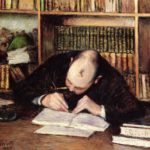Stop motion animation that uses Playmobil to tell the story of Martin Luther, and the Reformation. Over 5000 individual photos bring to life scenes from the life of Luther like the castle where he hid as an outlaw, Wittenberg where he taught, the monastery where he was gripped by the Bible, and the Imperial Council at Worms.
Voice Over: Mike Reeves
Animation: Dan Rackham
Here’s the script from the Martin Luther video:
This is the story of Martin Luther.
He got up to some pretty adventurous things. He was kidnapped by knights on horseback; lived in disguise in a castle and helped some nuns escape from a monastery, by hiding them in barrels.
But as a young man he was troubled by a deep sense that he wasn’t right with God. Once, in a thunderstorm, a lightening bolt nearly struck him. He thought he was going to die.
He cried out for help to one of the saints, saying rashly: “Save me, and I’ll become a monk”.
He survived, and so, true to his word he gave up his studies as a lawyer and became a monk. His friends and family said he was wasting his talent.
In the monastery he started reading the Bible. He discovered that it was God’s mercy & love that was all that was needed to be right with God. For the first time in his life, he found a deep peace with God.
Luther was invited to be a lecturer at the university in Wittenberg. He taught through books of the Bible. His lectures were popular, even ordinary people from the town came along.
In those days the Catholic church was telling Christians that their good behaviour could earn them heaven. Luther knew from the Bible though, that no amount of good works could earn you forgiveness! Not even the pope was able to give forgiveness from God – only God could do that.
Luther saw that the church had left behind what the Bible taught and was even making things up for it’s own gain. He decided that he must teach against these false ideas.
He made his complaints public by nailing them to the place in town where people published important documents…the door of the castle church.
He explained that it wasn’t possible to buy God’s forgiveness or to live a life that was good enough to deserve to know God.
His writings, showed that God wants to forgive the wrong we have done. And that this is only possible because Jesus, the son of God, came to pay the punishment our wrong deserved. Jesus did this as he died in our place.
Luther’s ideas quickly spread throughout Europe thanks to a recent invention – the printing press.
The pope wrote a document saying that Luther had to take it all back. And if he didn’t he’d be treated as a heretic. Luther refused and publicly burnt a copy of the pope’s letter.
Luther’s ideas shook things up religiously, politically and culturally. He was summoned to stand before the emperor and answer for his supposed crimes of explaining what the Bible said.
The emperor declared Luther an outlaw, banning his literature. That’s when he was rescued and went to live in disguise in a castle. Dressing in knights’ clothing he changed his name to knight George and grew his hair and a beard.
He spent his time translating the New Testament – this again was published widely, meaning ordinary people could read the Bible for the first time.
Luther secretly returned to Wittenberg. He continued to write books and translate the bible. He also got married and had a family.
Europe was buzzing with Luther’s message about the Bible.
Today, 500 years on, the truths of the Bible that Luther knew continue to impact millions of people.
People who have come to know God personally, knowing the peace and forgiveness Jesus offers us.
The forgiveness that Luther found is still available today.
We can all be in a right relationship with God because of one man – the Lord Jesus Christ.

 How to Make an Effective Preacher – Author Unknown by Clint Archer (original source
How to Make an Effective Preacher – Author Unknown by Clint Archer (original source